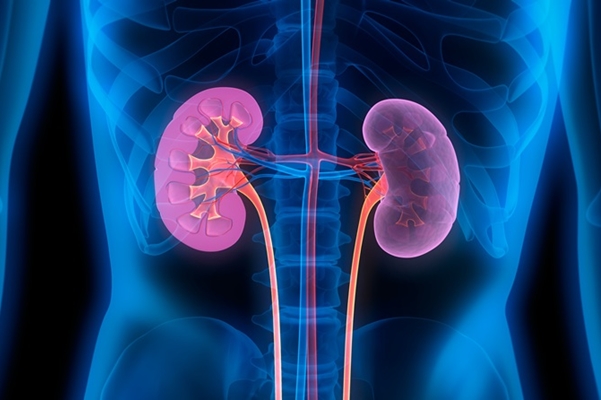



|
Tweet
Pin
It
|
Nephrology is derived from the Greek words 'nephros' meaning 'kidney' and 'logy', 'the study of', which together mean study of Kidney. It is the science that deals with the kidneys, especially their functions or diseases. Nephrology is the medical specialty which focuses on kidney conditions and abnormalities, involving the study of normal kidney function, kidney problems, the treatment of kidney problems and renal replacement therapy i.e dialysis and kidney transplantation. Though Nephrology is a subspecialty of internal / general medicine, the branch of medicine involved in diagnosing and treating diseases mainly in adults, it also deals with kidney abnormalities in children.
A Nephrologist, also called a renal physician, is a medical doctor who specializes in diseases and conditions related to human kidneys. In most cases, patients are referred to Nephrologists by other physicians. Nephrologists diagnose and treat a variety of conditions such as kidney disease, electrolyte disorders, renal failure, high blood pressure and kidney stones. They perform various tests like blood tests, urine tests and biopsies to find out diseases that affect the kidney. Their treatment includes regulation of electrolyte and blood pressure, medication and dialysis. Excluding procedures such as kidney biopsies and catheter placements, they do not do surgery, though they often work closely with urologists who perform medical as well as surgical intervention. Nephrologists must have a solid understanding of nephrology and the diagnosis and treatment of a variety of conditions.
Educational
Nephrology courses are offered as a specialization in most medical schools, and require candidates to have completed a basic course in medicine. The basic qualification needed to become a Nephrologist is MBBS degree obtained from an Institute recognized by Medical Council of India. The educational qualification needed for the candidates to obtain MBBS degree is plus two or equivalent with subjects Physics, Chemistry and Biology. Candidates who wish to get admission should qualify the all India common entrance test or entrance of the particular institute. Click for details
After completing MBBS, they should go for MD degree in General Medicine. MD admission is also based on Entrance tests. Candidates who have completed their MD in General Medicine can apply for DM degree in Nephrology or DNB in Nephrology. After obtaining this degree, they can practice as a Nephrologist. Nephrologists need a license to practice.
Personal Skills
Nephrologists should possess good interpersonal skills to liaise effectively with their patients and doctors in other medical specialties. They should possess the skill of critical thinking to excel in their career. Like any other doctor, they must have excellent bedside manner and ability to put patients at ease. A combination of determination, attention to detail and team spirit will help sustain in the field for long. Patience, self motivation and ability to work under pressure are essential characteristics for Nephrologists. On many occasions, a sense of humour helps. They should be aware and keep updated about the latest treatments available in this field.
Increasing use of Alcohol and Tobacco and consumption of pesticide spraying food products has resulted in the increase of patients suffering from kidney diseases thereby created acute need of those qualified as Nephrologists. Hence job prospects in this field are great for those with training and extensive experience.
Nephrologists may further specialize in pediatric nephrology (treatment of kidney diseases in children) or adult nephrology. Pediatric nephrology deals with the kidney structure, and diseases of infants, children and adolescents. It was developed from two branches of internal medicine-nephrology and pediatrics. Pediatric nephrology offers the opportunity to care for children with a wide range of disorders including those with transient conditions such as acute kidney injury or chronic conditions such as hypertension and chronic kidney disease that require long-term follow up. However, these specialization courses are available only abroad. In India, one can go for DM in Nephrology or DNB in Nephrology.
Nephrologists work in hospitals, kidney and dialysis centers, and general medical centers. Almost all hospitals have Nephrology departments, one can work in a hospital with a nephrology healthcare service facility. If you have higher education and more experience in the field, you can work as a consultant Nephrologist for more than one hospital sharing working hours. More enterprising Nephrologists can open their own clinics. There are also various kidney and dialysis centers where you can get placed as a Nephrologist. They can also opt for teaching jobs in different medical schools and colleges. Research is yet another fine option especially for the geniuses in the field.
In private hospitals, Nephrologists can earn a salary ranging between Rs. 1,00,000- 1,50,000 per month. However, with experience one can expect even more. Nephrologists in Government sector can expect to get salary between Rs.60,000 to Rs.80,000, depending upon his/her experience and expertise. Besides salary they are entitled to pension, free accommodation and various other allowances. Nephrologists with an excellent track record running their own clinic can earn much more.
Tags
medical science career
,
healthcare career
Find it Useful ? Help Others by Sharing Online
Comments and Discussions |
Related
Career Options
|
|||
|
|